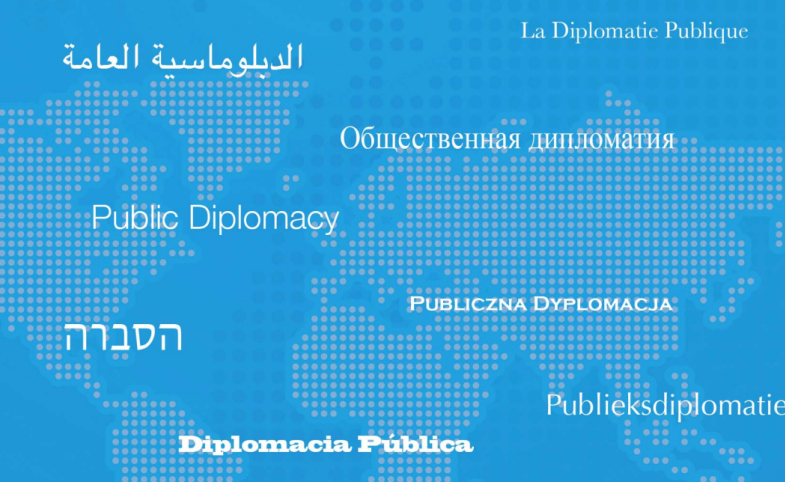A recent book from Martha Bayles, a lecturer in humanities at Boston College, tackles the question of how American entertainment industry products confound official U.S. government efforts to represent the nation to...
KEEP READING
Newest CPD Perspectives Emphasizes the Importance of Culture in Public Diplomacy
The Cultural Awakening in Public Diplomacy is the fourth and latest issue of CPD Perspectives on Public Diplomacy for 2012. Written by R.S. Zaharna, a CPD Research Fellow 2011-2013, the paper addresses the oversight of culture in public diplomacy and makes a case for its growing influence.
In this paper Zaharna, an associate professor at American University, argues that effective public diplomacy must bring culture to the fore in order to generate a more meaningful exploration of the subject. Culture, she states, can strengthen relations and communications between nations and people, yet it gets lost in political, economic and bureaucratic factors. Zaharna considers methods of building cultural awareness and knowledge, and puts forth ways of recognizing culture’s eloquent signs. Finally, she considers the implications of bringing culture into the realm of public diplomacy through the lens of public diplomacy practitioners and programs, calling for the need to include culture as a component of public diplomacy evaluation.
Read the entire paper here.
CPD Perspectives is a periodic publication from the USC Center on Public Diplomacy, and highlights scholarship intended to stimulate critical thinking about the study and practice of public diplomacy.
Review of The Cultural Awakening in Public Diplomacy
- by Nicholas J. Cull, director of the USC Master of Public Diplomacy program and a CPD University Fellow
"R.S. Zaharna has, over the past couple of years, authored some of the most thoughtful contributions to the field of public diplomacy studies. Her 2010 monograph, Battles to Bridges: U.S. Strategic Communication and Public Diplomacy after 9/11 in particular, set out not only the core problems of the U.S. approach to the Arab world, but also provided a blueprint for a superior approach, informed by attention to culture, specifically an understanding of networks and a commitment to exchange. In this new essay Zaharna develops her exploration of the cultural dimension underlying both the problems of public diplomacy and its solutions. This is not a paper on the use of culture as an explicit tool of public diplomacy – cultural diplomacy – and readers looking for insights into the working of the British Council or Goethe Institute must look elsewhere. Rather, this paper foregrounds the development of culture as a fundamental dimension of public diplomacy and foreign affairs more generally.
Zaharna does well to direct readers to the deep roots of public diplomacy, pushing back beyond the War on Terror issues which preoccupy journalists and Cold War fixations of most historical approaches to acknowledge public diplomacy as a fundamental practice of statecraft. What is new is the centrality of the public as a focus of international relations which by the same token foregrounds the relevance of the formal study of that public’s inner workings: culture. There is an intriguing mismatch between a pioneering American awareness of culture as a significant dimension of diplomacy at mid-century (witness the launch of the Fulbright program) and its recent neglect. One explanation is that America’s own attempts to understand its own cultural diversity have come to substitute for attempts to understand the cultural diversity of its international interlocutors. The assumption of shared political values which underpins the domestic cultural discourse simply does not work on the world stage. Like an unseasoned traveler who denies that they themselves might be thought by other ears to speak with an accent, the United States, Zaharna notes, has been amazingly unaware of the cultural specificity of its own approach.
Zaharna’s call to consider culture in both the study and practice of public diplomacy is timely and important. Yet there is an underside to the awareness of cultural difference in international relations. It is possible to over-emphasize the divergence of peoples – the differences famously identified in Geert Hofstede’s work – and neglect those things that peoples share. No culture responds well to exploitation, foreign occupation or robot bombs dropping on family gatherings. The dawn of cultural awareness requires a first step of empathy for a fellow human before elaborating the approach to allow for a divergence of that humanity along its distinct cultural path. The road to which Zaharna directs us will be challenging but one cannot doubt its rewards for the scholars and the diplomats who join her on that journey."
Visit CPD's Online Library
Explore CPD's vast online database featuring the latest books, articles, speeches and information on international organizations dedicated to public diplomacy.
Popular Blogs
-
January 29
-
January 20
-
January 28
-
January 2
-
January 8












Add comment